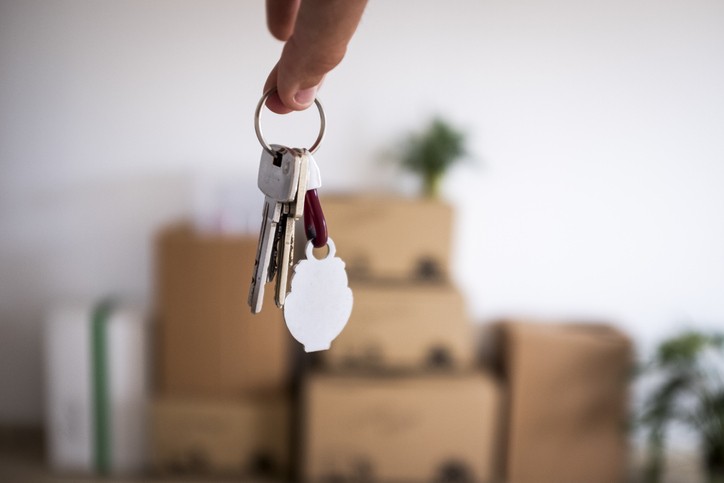It’s that time of year again! It’s time to go house hunting for your next new home. Buying a new home is an exciting, nerve-wracking experience, and to most people, this is a daunting task. However, there are some safety checks that you can do before buying your new home, which will help ensure that it is safe and secure for you and your family. These 11 safety tips are what we recommend as the best security checks when looking for house to make sure that everything is in order with your soon-to-be new home.
- Verify the Exterior
The exterior of your home is a great place to start when it comes to new home security checks. After all, you’ll be leaving the interior comforts and entering this area regularly at different times throughout the day or night, so everything must be in order here. The best way to do this is to be observant and take note of what you see. Check for any cracks, gaps, or holes in the exterior wall. Make sure that windows and doors close securely and can’t easily be lifted off by a child or pet. Lastly, double-check that everything looks structurally sound; no loose roof tiles, broken furniture, frayed window blinds, or other debris. Remember that some homes may need a little maintenance to get back into shape after you move in, but your home shouldn’t look like it’s falling apart.
- Make Sure There are No Cracks in the Foundations and Footings of the House
No amount of regular house inspections can check for these more significant problems. But, if you know of any cracks in the floors and foundations of your home, it is best to bring this up with a contractor as soon as possible. Cracks could indicate more serious problems such as foundation issues or structural instability.
- Check the Home for Defective Appliances and Fixtures
As with any old appliances and fixtures, these might be potential fire hazards and health risks if they’re faulty in any way, especially when it comes to hot plates, ovens, and anything that uses gas or electricity. If you see anything like this in the home, make sure to get it checked by a professional and made safe before you move in.
- Check for Signs of Bad Wiring or Electrical Problems
The home you purchase should be free of any lousy wiring and electrical issues. If there are visible signs of corrosion, exposed wires, faulty outlets, blown fuses, and the like, don’t hesitate to contact an electrician that you trust for a second opinion before moving in. It’s possible that some of these issues aren’t visible, so you’ll want to be safe rather than sorry. Remember: even if everything looks fine now, incorrect wiring increases fire risks and is an accident waiting to happen.
- Check All of Your Outlets and Switches
It’s essential to check every outlet and switch in your home as soon as you move in, as these might be potential fire hazards. If you see anything that looks suspicious — whether it’s the size of the wiring, how loose or tight a switch is, or any discoloring on sockets or plugs — have them checked out by an electrician as soon as possible.
- Check For Signs of Pest Problems
No one wants to purchase a home infested with rodents, bugs, or other pests. The best way to check for these problems is to take a look at the home’s exterior and interior before you purchase it. Look in corners, along windowsills, under appliances, behind furniture, and any other place where pests are likely to hide. If there are any signs of pest problems when checking out the exterior, then you’ll want to retake a look at the interior and examine every room with an eye for any of these clues.
- Check for Signs of Mold & Mildew Problems
These issues are common in air-conditioning units and humid places or places where there has been a lot of rain recently. If you can’t see any water damage to walls, ceilings, and other areas in the home, check out your air-conditioning system. You’ll also want to keep an eye out for signs of mold or mildew when checking every room. Even though these aren’t common problems when inspecting a house before purchasing it, you can never be too careful.
- Check Any Sign of Possible Flood or Leaks
If there’s any indication that your home is leaking or submerged in water for any reason, don’t even think about moving into this new home — especially not without checking what the cause might be! You’ll want to make sure that any roof damage is fixed before you move in.
- Get the Property Inspected by a Property Inspector Before Signing.
It’s important to have your home inspected by a property inspector before purchasing it to ensure new house is secure, but this step isn’t enough. If you’re thinking of moving into an old home, then you’ll need to have a professional come in and inspect the house even before you take a look at it, as any old home might require different repairs or renovations.
- Check if the Home Has Been Vandalized
Checking for signs of vandalism is especially important if there have been any crimes in the area. Even though checking out your new home on Google Street View can give you an idea of what it’s like outside, this isn’t enough for your home security and safety. You’ll want to see the exterior and interior with your own eyes before moving in.
- Check if the Home Has Been Used for Any Illegitimate Purposes
The last thing you want is to move into a home that’s been used for an unlawful purpose, such as manufacturing drugs or other illegal substances. There could be chemical contamination and mold growth inside the house, which poses serious health risks to anyone moving in after you do, so you’ll need to check very carefully before signing any documents.
Conclusion
Those are among the most crucial home safety checklist, and they are essential to consider when checking out a house you want to move into before purchasing it. There might be problems that the owner has for some reason not told you about, or there might be some damage caused unintentionally by someone moving in after you. It’s important to look everywhere inside and outside of the home, even places that are hard to reach. Suppose you want to avoid making a colossal mistake and moving into a place that jeopardizes your health. In that case, you should always follow the advice in this article before purchasing or signing any documents to ensure new home is safe.

